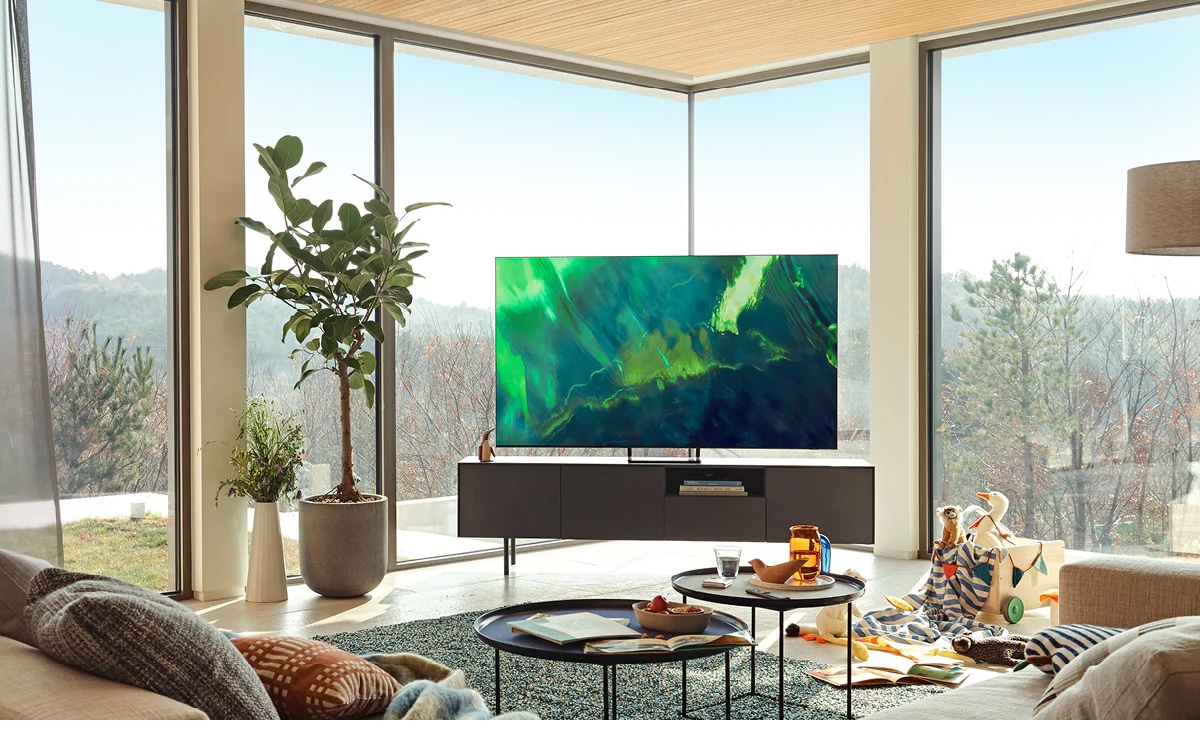Two common terms that very often confuse people looking for their dream TV are “4K” and “8K”. Want to know why so many TVs are advertised based on these two terms? Then let’s find out what they actually mean, so you can finally upgrade to a shiny new TV!
What Do 4K And 8K Actually Stand For?
Both 4K and 8K actually stand for the number of pixels that associated displays boast. 4K screens boasts a pixel count of around 2,160 pixels in height, and 3,840 pixels in width. 8K TVs, on the other hand, boast around 4,320 vertical pixels, and 7,680 horizontal pixels.
4K and 8K are very simple abbreviations that refer directly to the amount of pixels each display has. If a display is “4K”, then it will have around 8,200,000 total pixels!
4K TVs are a significant step up from standard HD TVs, which boast around 1080 vertical pixels, and 1920 horizontal pixels. 4K TVs are able to boast around four times the pixel count of standard HD TVs, which makes them great for delivering high-fidelity images.
8K TVs are a step above 4K TVs, with double the 4K pixel count.
Is The Difference Between 4K And 8K Significant?
Absolutely. Because 4K TVs are able to deliver such fantastic resolutions, it’s easy to assume that there won’t be many improvements. Seeing the difference for yourself would be enough to convince you of the massive upgrade that 8K represents.
However, one of the main reasons why 8K TVs are less popular than 4K TVs is the fact that there is very little 8K content to take advantage of greater resolutions. 4K TVs have plenty of 4K content, such as streaming content, 4K UHD Blu-Rays, and 4K Gaming, which makes 4K TVs an easy sell.
The lack of 8K content to take advantage of 8K TVs makes them a lot less attractive to potential customers.
Should You Upgrade To A 4K TV?
4K is very quickly becoming the standard resolution across the TV market, so it is totally worth upgrading from a standard HD TV to a 4K TV model.
No matter what you use your TV for, 4K can help to make it better. If you are a film buff, or you love keeping up with all of the trending Netflix series, then a 4K TV is an absolute must. Many major TV shows and films are now natively produced in 4K, so having an appropriate display to take advantage of this is essential.
4K TVs are also great for hardcore gamers. Many of the world’s top consoles can natively output at 4K resolutions, so why not take advantage of this? The best TVs for gamers also help to grant players a competitive edge, by making it easier to notice smaller details. Want to spot your opponents from across the battlefield in a fast-paced shooter? Then you’ll need a resolution to match!
Live TV is also made much better at 4K resolutions. World-famous music festivals are rendered in all of their colourful glory, allowing you to feel as though you are right there yourself. And when it comes to live sports, 4K TVs help to make it much easier to keep track of what’s going on. 4K displays make it much easier to spot individual players on a football pitch, so you can track the performance of every single player!
Upgrading to a 4K TV is also worth it if you’ve been dreaming of a larger TV for a number of years. The greater number of pixels means that films and TV shows can stretch across the expanse of a 98 inch TV without losing any visual fidelity!

Is It Worth Upgrading To An 8K TV?
Upgrading to an 8K TV from a standard HD or 4K TV can be a very significant investment. Not only do these screens cost a lot more, but there is also far less content available to take advantage of them.
However, it may be worth upgrading to an 8K TV if you are interested in future-proofing your technology. Though it is slow going, 8K TVs are beginning to grow in popularity. It is highly likely that more streaming platforms and broadcast channels will begin releasing content in 8K resolutions in order to keep up with advancing technology.
If you are planning to upgrade to an 8K TV, make sure to carefully consider it. Though it can be a great investment, it can be a very costly one!
Frequently Asked Questions
What Do 4K And 8K Stand For?
4K and 8K are abbreviations that both make reference to distinct UHD TV resolutions. 4K TVs feature around 2,160 vertical pixels, and 3,840 horizontal pixels. 8K TVs feature around 4,320 vertical pixels, and 7,680 horizontal pixels. These helpful abbreviations make it much easier to shop for these resolutions both in person and online.
Is There A Big Difference Between 4K and 8K?
Absolutely. When you consider that 8K TVs feature double the pixel count of 4K TVs, there absolutely is a big difference between the two displays. However, in order to notice the difference, you would need to see these two resolutions side by side. It really has to be seen to be believed.
Why Is 8K Not Popular?
There are two reasons why 8K TVs have yet to take over 4K TVs as the standard. One is that there is simply too little 8K content available to take advantage of the greater resolution. As well as this, many people are still unsure what the difference between 4K and 8K actually is.
Is Anything Filmed In 8K?
The vast majority of big-budget Hollywood productions are still filmed in 4K resolutions. It will still be some time before we see 8K productions coming out from some of the world’s biggest studios. In order to film 8K content, studios will need entirely new cameras and other equipment, which would prove incredibly expensive.





